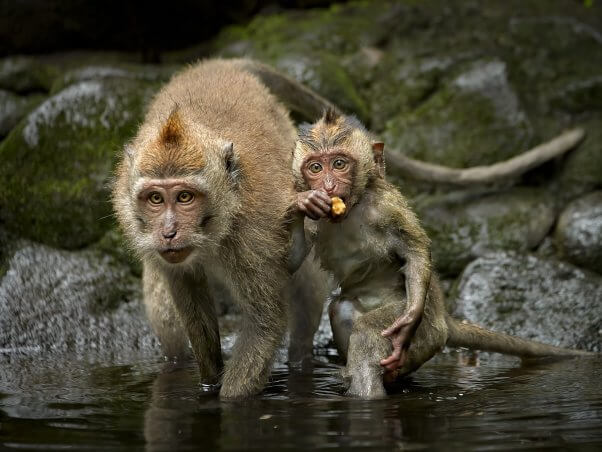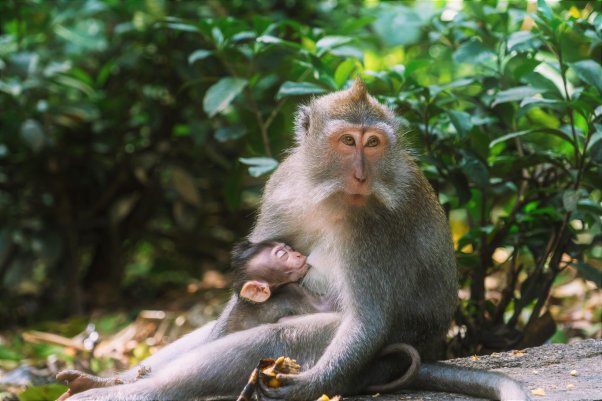What Was a Monkey Doing at Walmart?
A 3-year-old child was scratched by a Java macaque monkey inside a Walmart store in Bedford, Indiana. The diapered, leashed monkey was apparently an “emotional support animal,” although paperwork the owner reportedly provided was actually registered to a dog. The child’s distraught mother said, “We weren’t facing [the monkey] … had no snacks and in no way provoked [the animal].” Police responded to the scene but didn’t seize the monkey.
Business as Usual
Seeing a monkey inside Walmart may be unusual, but aggressive incidents involving monkeys under the strain of cruel confinement occur with staggering regularity. Such incidents illustrate the profound level of stress, anxiety, and agitation that these animals experience every day. Numerous people have been injured by captive primates, and some have even lost body parts. Keeping wild animals as “pets” is a supremacist worldview that also has deadly consequences for countless primates every year.

The Captive Primate Safety Act (HR 8164/S 4206) would make it unlawful to breed primates in private homes or possess them in the future. If passed, people would no longer be able to buy monkeys to keep them as “pets.” The law would afford regulated primates significant protection.
Primates Belong in Rainforests and Jungles
Java macaque monkeys, native to Southeast Asia, live in complex matriarchal societies. These keenly intelligent primates use tools like rocks, which they use to smash open nuts. They spend most of their time in tree canopies.

PETA campaigns hard to show how our fellow primates suffer when they’re used in painful experiments, exploited for cheap entertainment, kept as “pets,” or abused by humans in other ways.
The hit docuseries Chimp Crazy detailed PETA’s unrelenting work to rescue chimpanzees who were kept in a sleezy Missouri breeding compound to be exploited in the entertainment industry and the pet trade.
*****
Help pass the Captive Primate Safety Act:

